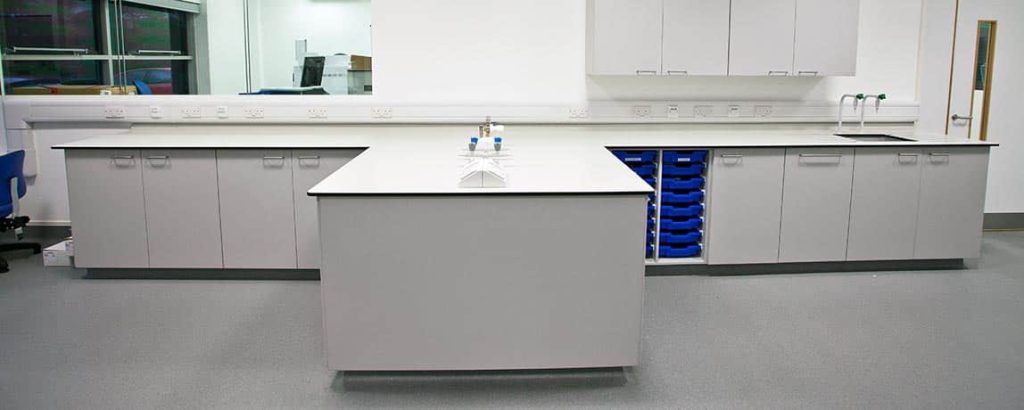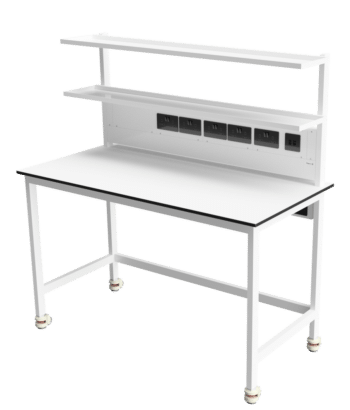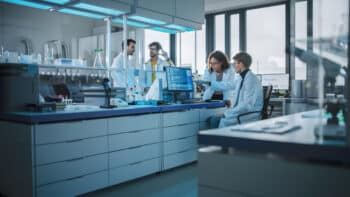A laboratory is a place where scientific experiments and research are carried out, and it is essential that the environment is clean and safe for everyone working in it. One of the most important aspects of a laboratory is the worksurface, as it is where all the experiments and research are conducted.
The worksurface must be suitable for the task at hand, as well as being durable, easy to clean, and resistant to damage from chemicals and other substances that may be used in the lab. In this article, we will explore the best worksurfaces for use in a laboratory.
Phenolic Resin
Phenolic resin worksurfaces such as Trespa Toplab Base, Trespa Toplab Plus and the new Trespa TopLab Align are known for their durability, resistance to chemicals, and low maintenance. Phenolic resin is a synthetic material that is made from layers of paper or wood pulp impregnated with phenolic resin and compressed under high pressure and heat. Phenolic resin worksurfaces are suitable for most lab environments and are probably the most common laboratory worktop in use today in the UK, as they can withstand exposure to acids, bases, and solvents.
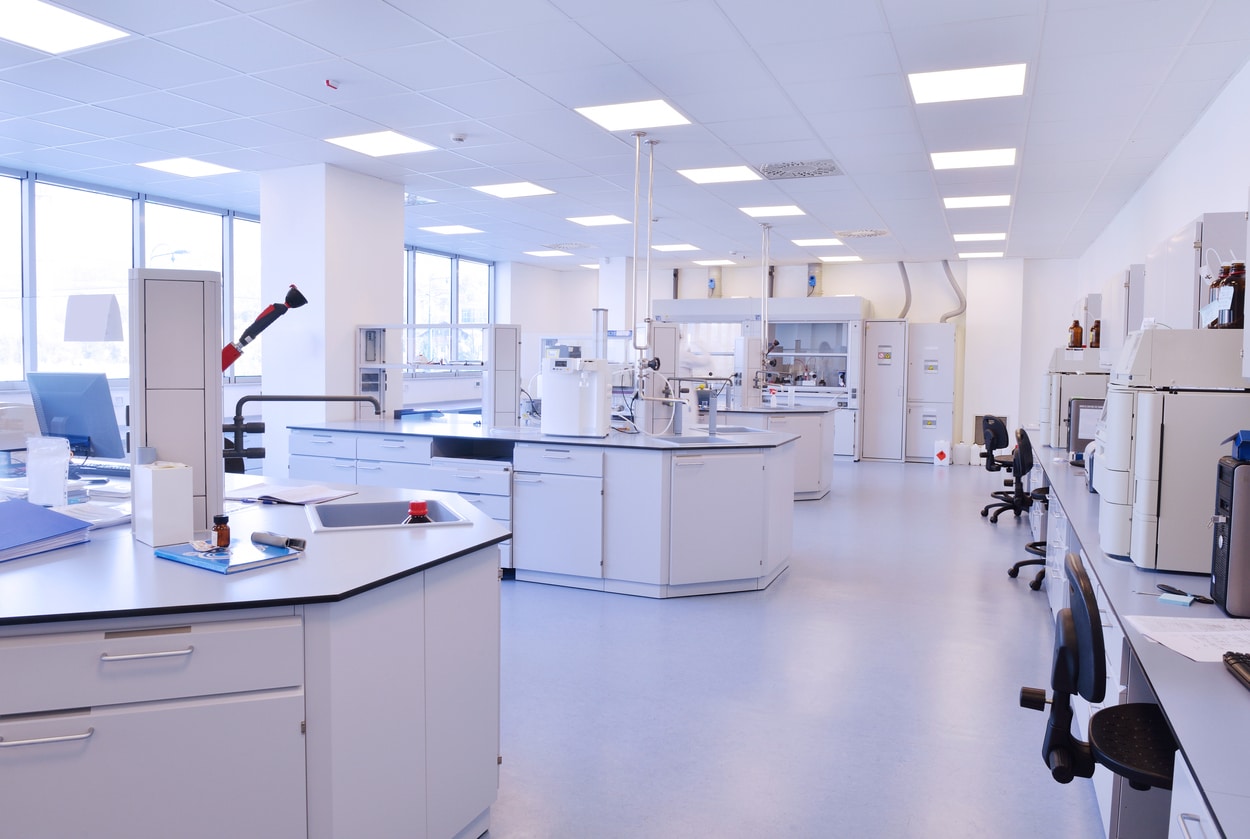
Epoxy Resin
Epoxy resin is another choice for laboratory worksurfaces. It is a synthetic material that is highly resistant to chemicals and is easy to clean. Epoxy resin worksurfaces are often used in chemistry labs where strong acids and bases are used, as well as in microbiology labs where bacteria and other microbes are present. It is also commonly used in hospital and clinical environments due to its antimicrobial properties.
Solid Surface
Solid surface worksurfaces such as Velstone are made from a combination of natural minerals and acrylic polymers. They are known for their durability, easy maintenance, and resistance to chemicals and stains. Solid surface worksurfaces are commonly used in blood labs and hospitals where a joint-free worksurface is required as they can be easily cleaned and sanitised.
Stainless Steel
Stainless steel is also a choice for laboratory worksurfaces due to its durability, easy maintenance, and resistance to chemicals and stains. It is also easy to clean, making it an ideal option for labs where hygiene is a top priority. Stainless steel worksurfaces are commonly used in areas where corrosive chemicals are used or in microbiology labs where bacteria and other microbes are present. It is also a preferred choice for sterile environments where the risk of contamination must be minimized such as hospital theatres, mortuaries, and forensic pathology labs, however it is generally quite expensive due to the specialist fabrication costs and as such tends to be used in a more limited way for specific areas of a lab.
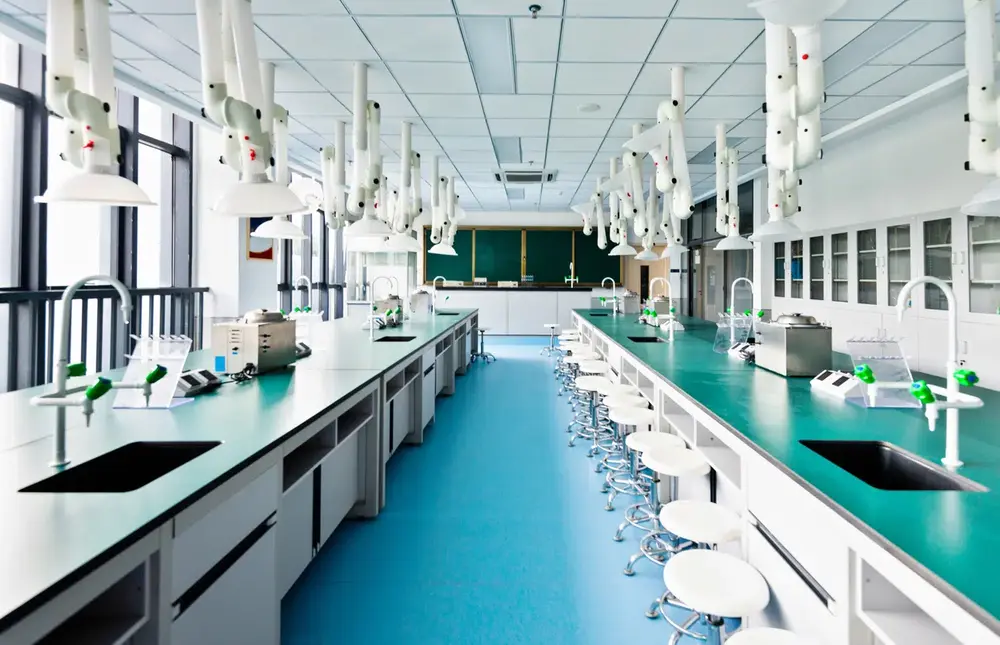
Granite
Granite is a natural stone that is known for its durability, resistance to heat, and resistance to scratches and stains. Granite worksurfaces are often used in geology labs, where rocks and minerals are analysed. They are also a popular choice in physics labs, where heavy equipment is used, as they can withstand a lot of weight. A very common use for granite is for weigh scales balance benches and microscope benches where the instruments require protection from vibration.
ESD
ESD (Electrostatic Discharge) worktops are specialized work surfaces that are designed to prevent the build-up and discharge of static electricity. They are commonly used in electronics manufacturing, research and development labs, and other industries where sensitive electronic equipment is handled. ESD worktops are typically made from materials that have low electrical resistance, such as static-dissipative laminate. The worktops are grounded to prevent the build-up of static electricity, and are often connected to a grounding system that includes ESD wrist straps, conductive floor mats, and other equipment designed to prevent electrostatic discharge.
In conclusion, the worksurface is an essential component of any laboratory, and it is important to choose the right material for the task at hand. Stainless steel, epoxy resin, phenolic resin, solid surface, and granite are all popular choices for laboratory worksurfaces. When selecting a worksurface, it is important to consider factors such as durability, resistance to chemicals and stains, ease of maintenance, and resistance to damage. With the right worksurface, a laboratory can function efficiently, safely, and effectively.
InterFocus can help you build the laboratory workshop that’s perfect for you and your team. For more information about our bespoke fitted labs, visit our homepage or call our team on 01223 894 833.

